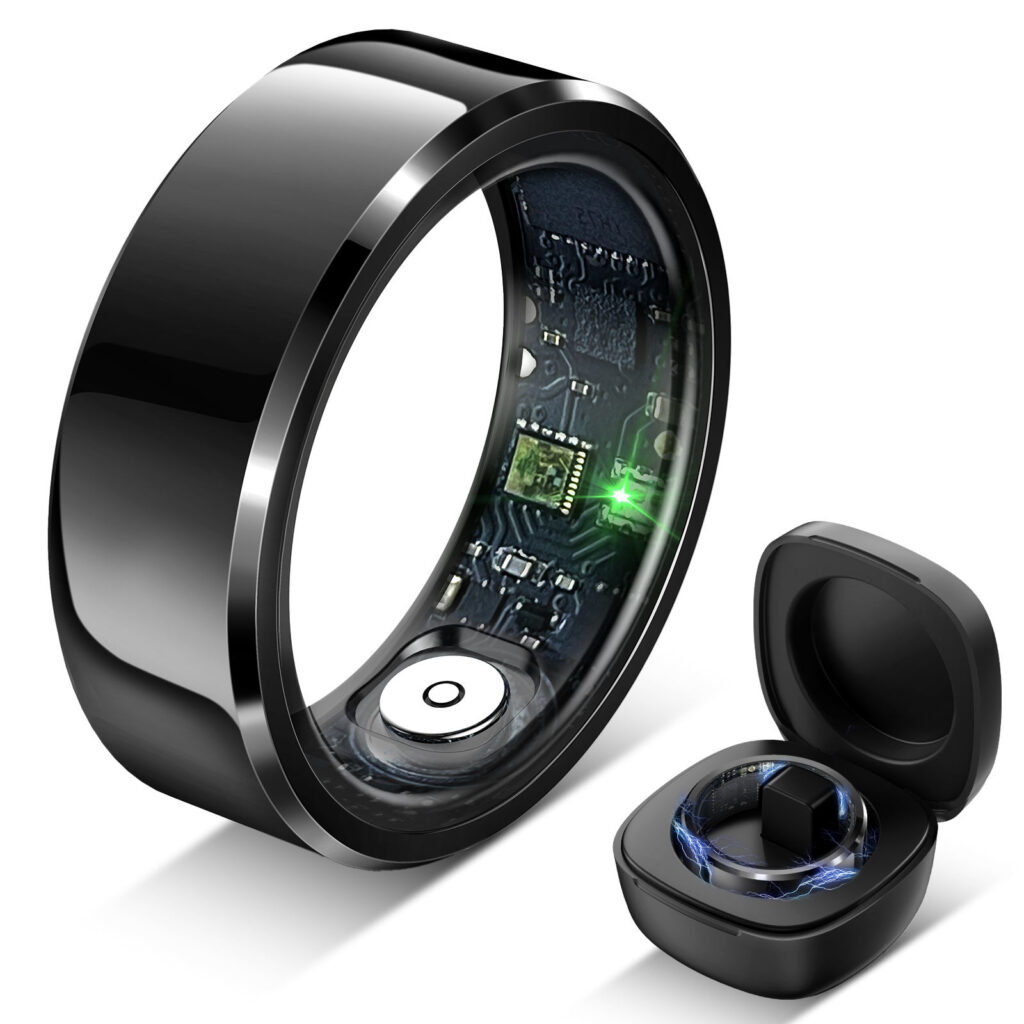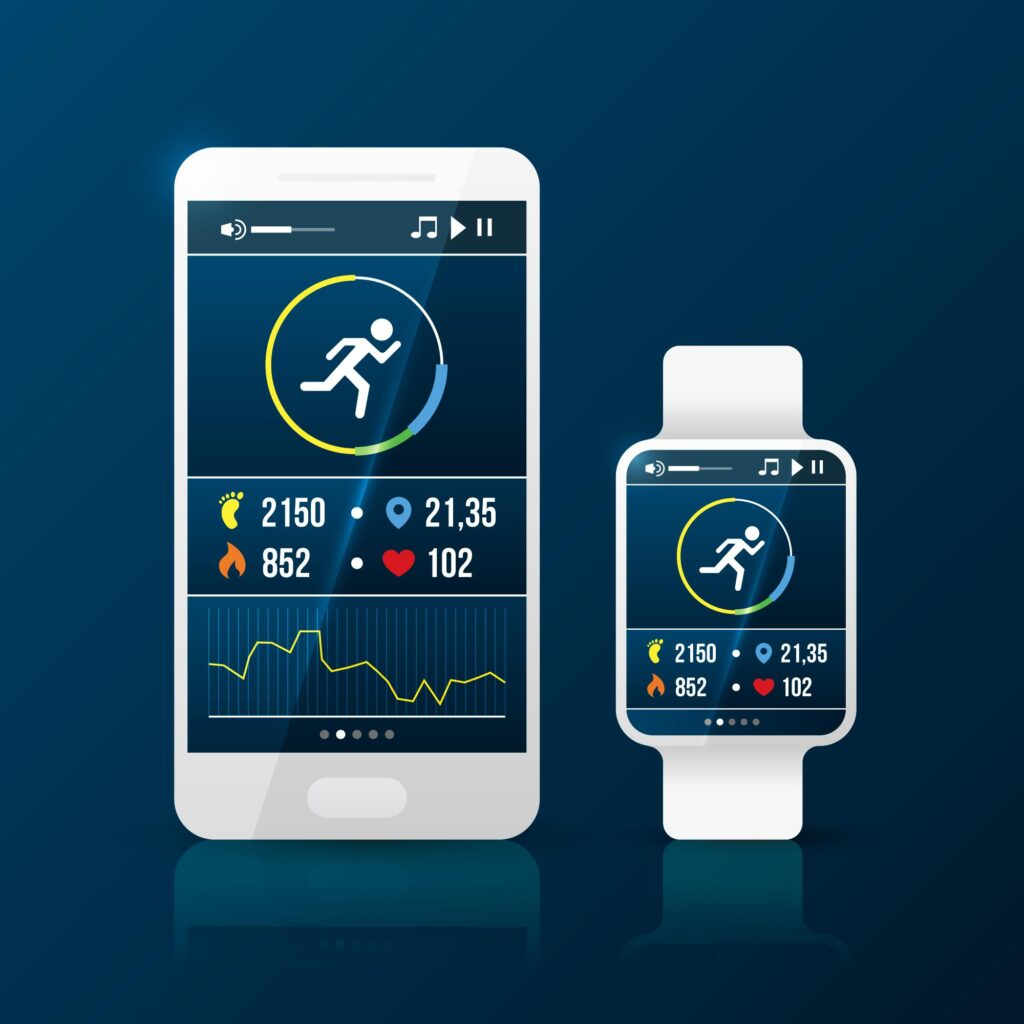Introduction
In today’s digital-first world, health and fitness are no longer just about hitting the gym or following a generic workout plan. Instead, personalized fitness using AI apps and wearables has revolutionized the way we exercise and care for our bodies. From AI-driven workout recommendations to smartwatches that track sleep, heart rate, and stress levels, technology is reshaping personal health.
This blog explores how personalized fitness using AI apps and wearables is changing lives, the benefits it offers, real-world examples, potential challenges, and what the future holds.
Why Personalized Fitness Matters
Traditional fitness plans often follow a “one-size-fits-all” approach, which may not work for everyone. Each person has unique goals, fitness levels, and health conditions. Personalized fitness using AI apps and wearables tailors plans to individual needs, ensuring better outcomes.
- A beginner might need shorter, low-impact workouts.
- An athlete could benefit from high-intensity interval training.
- Someone recovering from an injury may need gentle, guided movements.
By analyzing personal data, AI can adjust fitness programs in real-time.
How AI Apps and Wearables Work
The backbone of personalized fitness using AI apps and wearables lies in data collection and smart algorithms.
- Wearable Devices: Smartwatches, fitness trackers, and smart rings gather metrics like:
- Heart rate
- Step count
- Calories burned
- Sleep cycles
- Oxygen levels (SpO₂)

- AI-Powered Apps: Apps such as Fitbit, Apple Fitness+, and MyFitnessPal use AI to analyze the data. They then provide insights like:
- Personalized workout suggestions
- Nutrition advice
- Progress tracking
- Recovery recommendations
- Integration with Health Goals: AI combines all the data to design tailored programs. For example:
- If your heart rate is consistently high, it may recommend breathing exercises.
- If you didn’t sleep well, it might suggest lighter activity.
Benefits of Personalized Fitness Using AI Apps and Wearables
1. Tailored Workout Plans
Instead of following random YouTube workouts, AI gives you exercises based on your body type, performance, and goals.
Example: If your wearable notices weak endurance, the app might recommend gradual cardio sessions.
2. Real-Time Feedback
AI can guide your form and intensity during workouts. Some apps even use motion tracking to correct posture.
Example: Peloton and Tempo provide live feedback during classes.
3. Holistic Health Monitoring
Fitness is more than exercise—it’s about sleep, nutrition, and stress. Personalized fitness using AI apps and wearables integrates all these factors.
Example: Oura Ring not only tracks steps but also monitors recovery and stress levels.

4. Motivation and Accountability
Gamification and AI coaching keep you consistent. Progress tracking charts and achievement badges encourage you to stick with your routine.
Example: Fitbit sends gentle nudges like “You’re 500 steps away from your daily goal.”
4. Motivation and Accountability
Gamification and AI coaching keep you consistent. Progress tracking charts and achievement badges encourage you to stick with your routine.
Example: Fitbit sends gentle nudges like “You’re 500 steps away from your daily goal.”
Challenges and Considerations
While personalized fitness using AI apps and wearables offers great potential, it’s not perfect.
- Data Privacy: Health data is sensitive. Always check app policies.
- Accuracy Issues: Wearables may miscalculate calories or heart rate.
- Cost: Premium apps and smart devices can be expensive.
- Over-Reliance: Technology should guide, not replace, healthy habits.
The Future of Personalized Fitness Using AI
The future is bright. Upcoming innovations may include:
- AI Coaches: Virtual trainers using augmented reality (AR) to guide workouts at home.
- DNA-Based Fitness Plans: AI analyzing genetics to optimize diet and exercise.
- Mental Health Integration: Apps combining meditation, stress tracking, and workouts.
- Community Challenges: Global AI-driven competitions for motivation.
Conclusion
Personalized fitness using AI apps and wearables is more than a trend—it’s the future of health. By combining real-time data, AI insights, and personalized recommendations, people can achieve their fitness goals smarter and faster.
For more health and lifestyle insights, check out my related blogs:
And for a deeper dive into wearable fitness technology, explore this resource by the World Economic Forum on Wearables and Health. and How investing in healthy habits can deliver a powerful return for society.
The future is personalized. The question is—are you ready to embrace it?




Pingback: Top 5 Fitness Apps and Wearables to Transform Your Health in 2025
I’m not sure where you’re getting your information, but good topic. I needs to spend some time learning more or understanding more. Thanks for great info I was looking for this info for my mission.
Thanks so much for your message!
I don’t think the title of your article matches the content lol. Just kidding, mainly because I had some doubts after reading the article. https://accounts.binance.info/hu/register?ref=IQY5TET4
Thanks for reading the article and for sharing your thoughts! It’s always helpful to know when a title and content feel a bit off to readers, even if you’re joking.